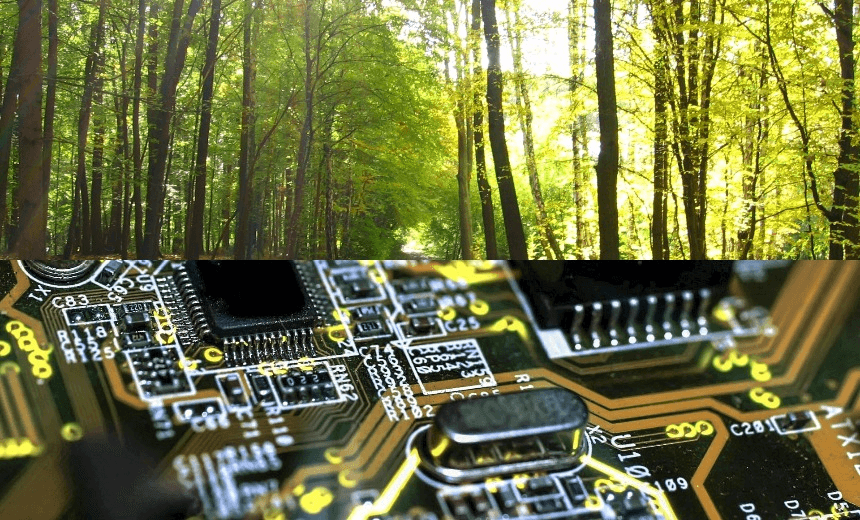Jonathan Cotton hears how technology can help literally save the world at Techweek’17’s Disrupting Climate Change event in Christchurch.
Big-brained idealistic-types made up the crowd at Wednesday night’s Disrupting Climate Change event at the EPIC (Enterprise Precinct and Innovation Campus), part of Christchurch’s Techweek’17 offering. There’s was lots to hear and lots to learn.
The evening’s MC, a casually-jandalled fellow by the name of Jason, started off the night’s dialogue with some thoughts about New Zealand’s place in the modern world.
“New Zealand,” he said, “is the agar plate of the world. We’re the testing ground for a lot of technologies. We were the first country to get EFTPOS. McDonalds tests their new menus here.”
So if we are a model for the rest of the world, the question, says Jason, is “how do we model a new way of living?”
First up on the speaker list was Judy Ryan, Sustainability Programme Advisor at Z Energy NZ. Starting strong, Judy cued up a slide proclaiming that “Fossils should be in the ground – not in our future”, which was certainly what the audience wanted to hear.
Given the overwhelming inclination from most of us to vilify the energy industry and its spokespeople, Ryan’s talk about what Z is actually doing was refreshingly plainspoken, with a healthy balance of idealism and pragmatism. “Most of us drive cars that use fossil fuels, all our trucks use fossil fuels too, as do our planes,” she says. “That’s not going to change overnight”.
That may be so, but the company’s making some good moves regardless, most recently building a commercial $26 million biodiesel plant, New Zealand’s first, in Wiri, Auckland, that will open soon. As a result, Z expects to save 37,000 tons of carbon.
Though the bottom line will always be the bottom line, for an energy corporate, Z seems to be making all the right noises.
Next up was Dr Suzi Kerr, a Senior Fellow at Motu who’s been working on the issue of climate change since way back in ‘93.
The problem New Zealand faces is this, Kerr says: We’ve committed to ultimately producing net zero emissions – which is good – but a full 50 percent of New Zealand’s current emissions are biologically produced. “We need to diversify land away from ruminants,” says Suzi. “That is, burping, farting sheep.”
While considerable improvements have already been made, those gains have been offset by growth, so what’s a little dairy and lamb producing country at the bottom of the world to do?
The answer: new, non-carbon-spewing crops.
Industrious farmers are already trying their hand at such unique (on these shores at least) crops as lavender, tea, saffron, macadamias and hazelnuts, and various types of seeds. They’re still niche industries, says Kerr, but they’re a good start and could be huge if effectively scaled.
And what about more adventurous options? There’s no reason New Zealand couldn’t become a major exporter of edible insects. Or synthetic milk. Or lab-grown meat?
“We need smart people to take these ideas to trial then to scale,” says Kerr. “We need people who can take this stuff to international markets”.
Next up was Luke van Zeller, general manager for bids business and bid development at Infratec, a solar plant and grid storage company that’s doing big things (as in “$15M to $25M in revenue in just two years” big).
Van Zeller talked about some of the microgrid projects Infratech had been working on (‘Microgrids’: geographical locations that have their own supply of electricity). There are a bunch of them, including the Kiritimati renewable energy project, which has all its infrastructure built two meters above sea level because in a few years it will likely be under water).
Solar grids offer different benefits depending on location. Having a microgrid in a hospital, for example, is a good idea – when the power goes out the hospital stays on. Autonomous grids on small islands offer an eco-friendly and cheap energy source. Microgrids are also an excellent alternative for consumers who find themselves on an uneconomic line and threatened with disconnection (farmers and people in isolated areas, for example).
It’s smart, popular (if the massive penetration of home solar systems is anything to go by) and green as it gets. So what’s the hold-up? Why aren’t solar grids everywhere?
A couple of reasons. There’s no regulatory framework in place and, more importantly, the cost of the technology is still prohibitive. Storage in particular is expensive. But that’s about to change. Storage is getting better and prices are falling rapidly, so prepare yourself. Solar is coming.
With the individual speakers finished, a blink-and-you’ll miss it Q&A session was held, the two the chief takeaways being:
- Looking to do some good for the world? Don’t install solar panels on your home. Save your money and buy an electric car instead.
- Biodiesel is made from tallow (yes, the animal byproduct). Gross.
As I shuffled for the door, a contingent of very smart people made their way across the road to Christchurch alcoholic institution Smash Palace to continue the conversation, keeping the issue of just how climate change is going to be disrupted in some very capable hands, for the rest of the night at least.
Techweek’17: a week of events bringing together New Zealand’s brightest technology and innovation talent to tackle global issues with local ingenuity. May 6-14, Nationwide. techweek.co.nz
